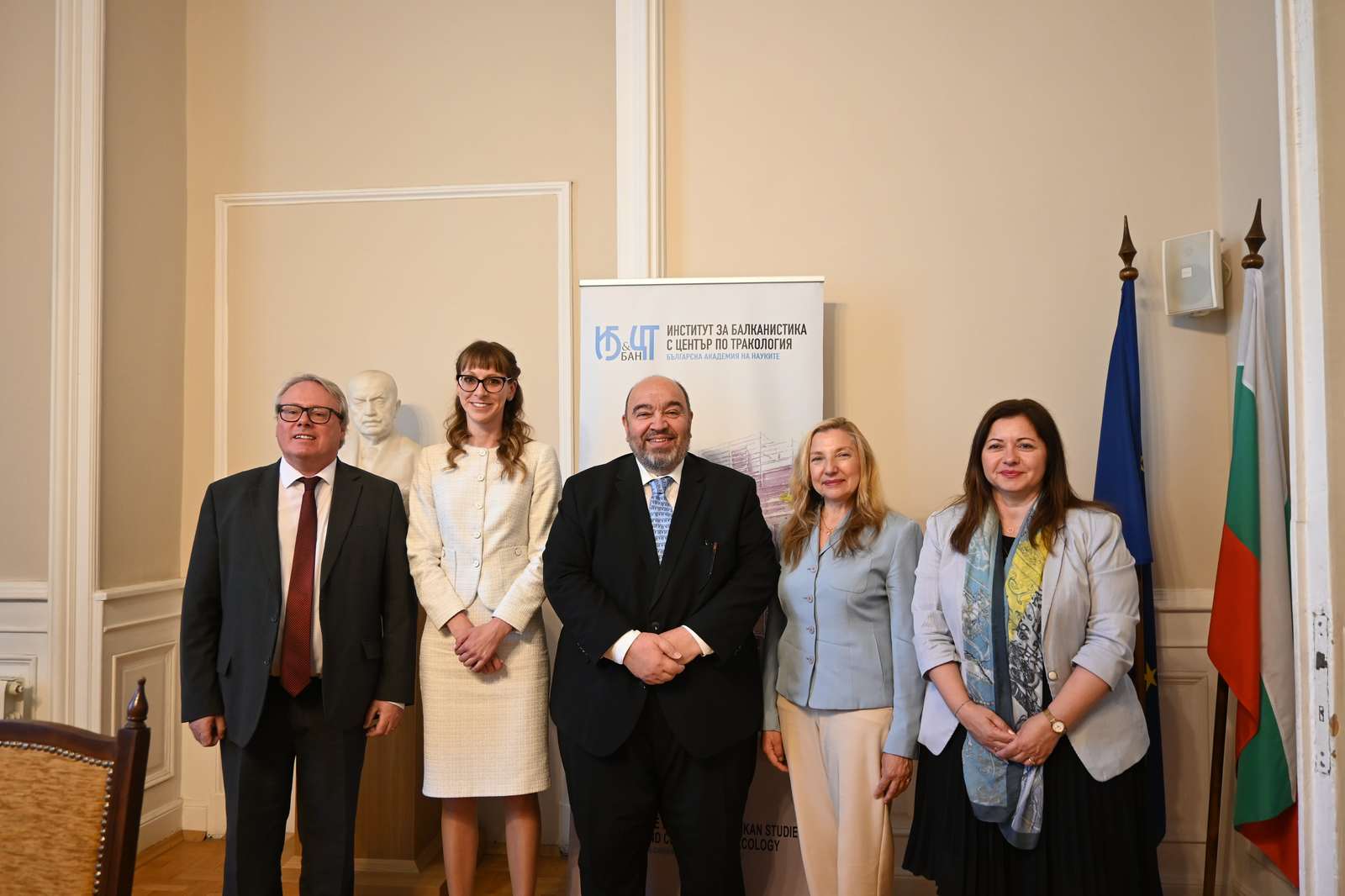THE CULTRAL DIPLOMACY OF GREECE BECAME A FOCAL POINT OF DISUCSSION
On July 2, 2025, the State Cultural Institute under the Minister of Foreign Affairs took part in a public lecture-discussion on the topic “Greece's culture is far more than the Acropolis”, held in the Ivan Geshov Hall of the Bulgarian Academy of Sciences. The event was part of the series of initiatives dedicated to cultural diplomacy in Bulgaria and the Balkans, organized by the Institute of Balkan Studies & Centre of Thracology at the Bulgarian Academy of Sciences (IBSCT-BAS) in institutional partnership and collaboration with the State Institute for Culture to the Minister of Foreign Affairs of the Republic of Bulgaria (DKI). The discussion was officially opened by Senior Asst. Prof. Dr. Alexandra Milanova, project manager, Prof. Dr. Rumyana Il. Preshlenova – Director of IBCT–BAS and Ms. Snezhana Yoveva-Dimitrova-Director of the State Institute for Culture. Special guest and speaker was H.E. Alexios Marios Liberopoulos, Ambassador of the Republic of Greece to Bulgaria. He introduced the attendees to the main aspects of Greek culture, pointing out the importance of culture as an asset and strategy facilitating intercultural dialogue and communications. Among the special guests were H.E. Joël Meyer, Ambassador of the Republic of France to Bulgaria. The interesting topic brought together specialists from various academic fields and institutions. The event was attended by Assoc. Prof. Dr. Mario Ivanov, Scientific Secretary of Division 8 "Cultural-Historical Heritage and National Identity", Assoc. Prof. Dr. Mariana Tian, Scientific Secretary of Division 9 "Man and Society", Assoc. Prof. Dr. Albena Taneva, Head of the Department of Public Administration at the Faculty of Philosophy of Sofia University "St. Kliment Ohridski", journalists from the Bulgarian National Radio, representatives of the cultural sector, scholars, university professors, doctoral candidates, and students. Within the lecture, significant attention was paid to the multi-layered, dynamic and changing notion of culture. Furthermore, attention was pied to the vital role of culture in resolving conflicts, contributing for building up intercultural “bridges” and dialogues on the Balkans as well as on global scale. Accepting culture as a unifying power, significant attention was dedicated to the cultural diplomacy and collaboration, security issues, the necessity оf education and common language to facilitate the exchange of ideas and experience. H.E. Alexios Marios Liberopoulos shared his positive opinion regarding ongoing Bulgarian-Greek cultural cooperation, focusing on the implementation of a number of exchange programs. He emphasized the importance of culture as an means for sustainable development and . Attention was also paid to the cultural heritage preservation and promoting cultural heritage as an integral part of the cultural identity of each country. The wide interest in the topic brought to the front additional questions, becoming the basis for further discussions. In her welcome speech, the Director of the DKI, Ms. Snezhana Yoveva-Dimitrova, expressed her pure gratitude appreciating the interesting presentation. Ms. Dimitrova gave thanks for sharing Greek experience on the role of culture in foreign policy interactions and emphasized the successful partnership with the Greek Embassy in Sofia on a number of projects, such as: joint participation in several editions of the International Francophone Festival "Soleil" in Sozopol, the project "Poetry in the Metro" under the EUNIC cluster in Sofia, international exhibitions at the "Mission" gallery with Greek artists, etc. The presented lecture-discussion is part of the series of initiatives of the Institute of Balkan Studies at the Bulgarian Academy of Sciences in institutional partnership with the State Cultural Institute at the Ministry of Foreign Affairs under the project "Cultural Diplomacy in the Balkans in the 20th and 21st Centuries: Achievements, Problems, Challenges for the Future", funded by the Scientific Research Fund of the Ministry of Education and Science.



